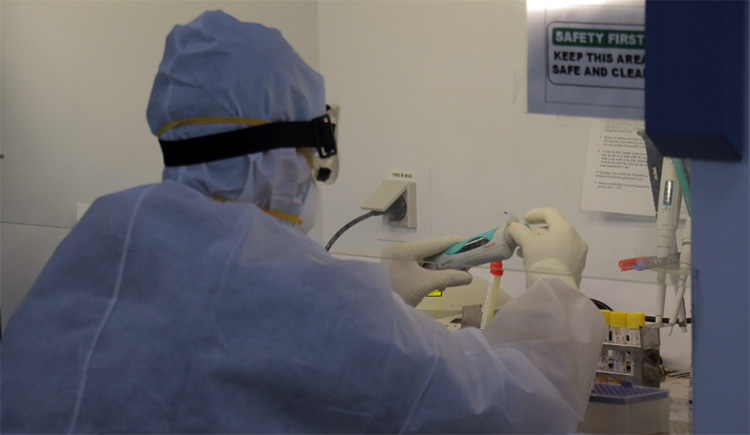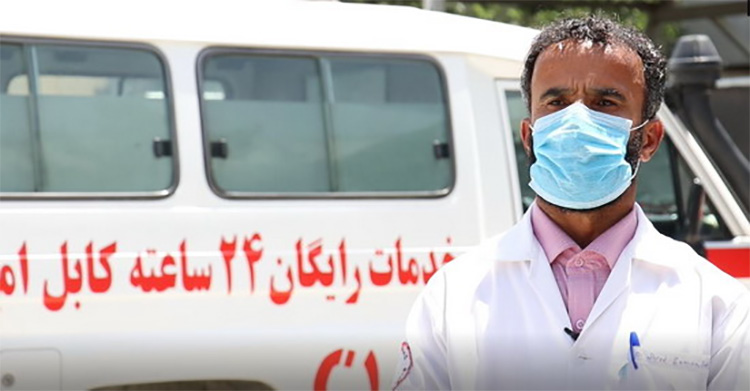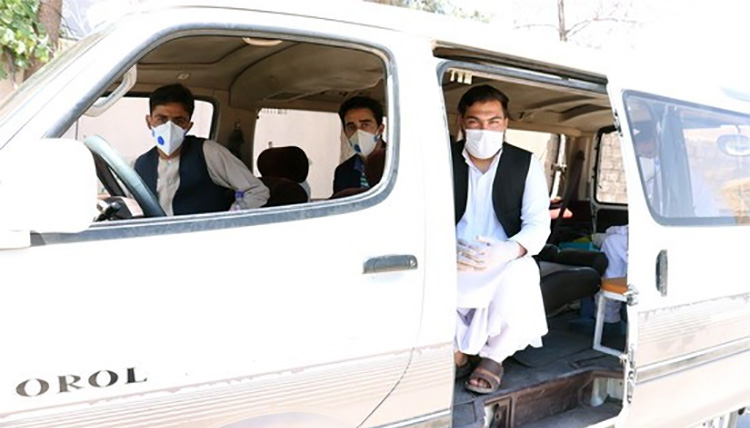
Cairo, 3 February 2021- COVID-19 has affected the lives and health of millions of people around the world. The physical and mental toll for many health workers is unprecedented. Many health care workers on the front lines have lost their lives, while other have lost friends and colleagues. “The unspoken question is, who is going to be next?” says a nurse from Aden, Yemen.
In battle without armour
“Since the beginning of the pandemic, Lebanese midwives have faced unprecedented challenges. Mainly, technical, and psychological challenges. “On the technical part, we faced shortages in medical equipment personal protective equipment, especially masks and gloves,” Ms Hanane Awada, a registered midwife, Lebanon.
Needed, yet avoided
“We transport patients with suspected or confirmed COVID-19 to hospital. We have been infected, but we went back to work as soon as we recovered. Given our regular and close contact with COVID-19 patients, people in our communities avoid us and we have sometimes been verbally attacked. If a patient dies in the ambulance while on the way to the hospital, we are often blamed and spoken to unkindly by their family members. We do not get upset about these things. We are here to serve the people, so we try to be as helpful as possible. We want to do our best to end COVID-19.” Syed Zaman Sadaat, Manager and Medical Staff, Kabul Ambulance Service, Kabul, Afghanistan.

Rapid response teams, always on alert
As the pandemic continues raging health systems across the Region, the need for an immediate response to save lives becomes critical. The work of the rapid response teams is an essential aspect of the COVID-19 response. These teams play significant role in ensuring that all suspected cases are investigated, isolated, and treated right away to prevent further spread.
“I’ve been with this rapid response team for the last 4 months. When the call centre receives a call, my team and I are sent to investigate to see if samples for COVID-19 testing need to be collected from the suspected patient. I am doing my part to make sure we can defeat this virus. I am in contact with COVID-19 patients regularly, but I take precautions to keep myself safe. Apart from taking test samples, I also deliver prevention messages to everyone we visit so they can pass those on to their family and others. We can only win if we all work together.” Nawrooz Amin, doctor, rapid response team, Herat, Afghanistan.

The heroes in labs
“I can only spend half an hour with my 7 children each day before I leave to work in the morning, since my workday doesn’t end until 3:00 a.m.,” said Dr Ali Abdulla, laboratory specialist and health director at the National Centre of Public Health Laboratories in Sana’a. “We hope that health workers in laboratories across the country who support the testing of COVID-19 are not forgotten. Our families need support, just like the health system in Yemen needs us to support it,” Dr Ali added.
“As the pandemic continues to overwhelm the health systems in our Region, the WHO Regional Office moved fast to strengthen the capacity of the national labs across countries of the Region,” says Dr Ahmed Al-Mandhari, WHO Regional Director for the Eastern Mediterranean. “WHO emphasizes the importance of diagnostic testing as part of a large scaled-up response strategy to control COVID-19 upsurge in our Region, performing tests is key to stop the chains of transmission,” he adds.
Health care workers prioritized
To ensure that health care workers are well prepared to continue the fight against COVID-19, WHO and health partners work to train health staff in all countries on infection prevention and control, especially in hospital settings. In 2020, WHO through the Dubai hub dispatched medical supplies, including personal protective equipment, diagnostics, and biomedical products valued at over US$ 21.4 million. This included the distribution of over 23 million surgical masks and 2.5 million N95 respirators as well as 1.2 million face shields. Countries of Yemen, Afghanistan, Lebanon, Libya, Syria, Tunisia, Somalia, Jordan, Iraq, and Sudan were the top recipients of these supplies. As vaccines start rolling out, health care workers a priority group, especially front-line health care workers who are working in the intensive care units, and staff working in COVID-19 wards. Prioritizing health care workers for COVID-19 vaccines will boost the fight against this pandemic. Getting them vaccinated will protect them, so they can continue their duty of care and continue being the heroes they are.




